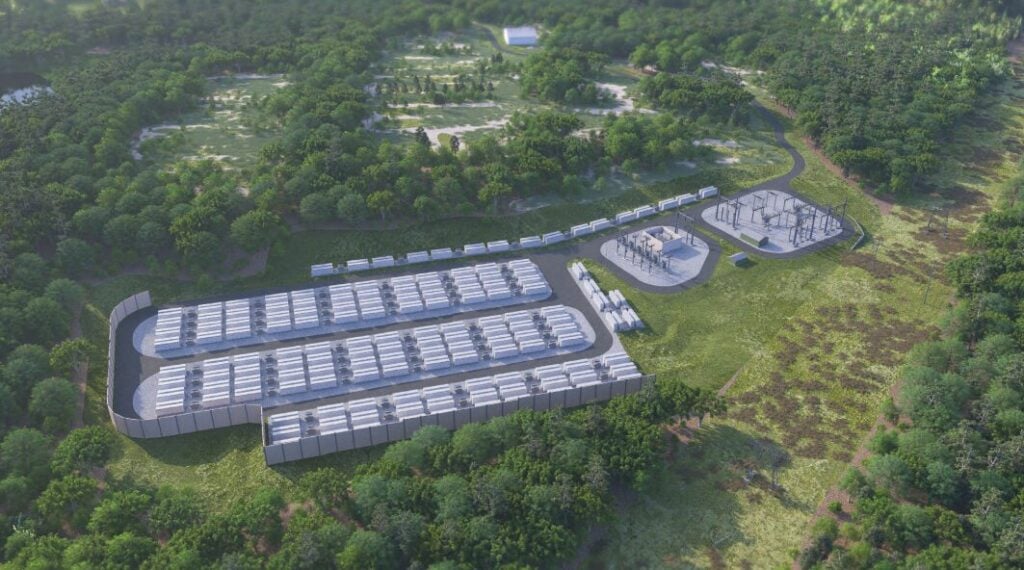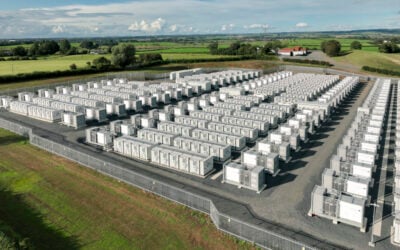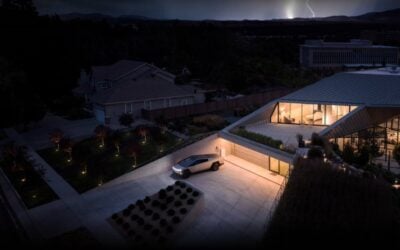
Developer Rhynland Energy has applied to Massachusetts’ energy regulator for approval of a 180MW/720MWh standalone BESS, to the dismay of local authorities in the Town of Oakham.
With authorities in the Town having previously amended its zoning laws outlawing standalone BESS, Rhynland is seeking a zoning exemption for the project with the State’s Department of Public Utilities (DPU).
“Unfortunately, Rhynland Energy chose not to listen to our taxpayers and went ahead and filed with the State for their Battery Energy Storage System proposal,” the Town said in a statement on its website.
Authorities amend zoning laws restricting energy storage
Energy storage technology first caught the attention of Oakham authorities in 2020, when they were approached by representatives of Borrego Solar, which wanted to construct a 100MW standalone BESS in the town.
Try Premium for just $1
- Full premium access for the first month at only $1
- Converts to an annual rate after 30 days unless cancelled
- Cancel anytime during the trial period
Premium Benefits
- Expert industry analysis and interviews
- Digital access to PV Tech Power journal
- Exclusive event discounts
Or get the full Premium subscription right away
Or continue reading this article for free
The development arm of solar EPC and O&M specialist Borrego, which has since been spun out as New Leaf Energy after an acquisition by investor ECP, intended to construct the BESS upon a six-acre rural site in the town’s southeastern outskirts. Connection to the PJM Interconnection-owned electricity grid would have been achieved via a 115kV transmission line owned by the National Grid.
Representatives for Borrego engaged with Oakham authorities and local residents leading up to its formal application, which was ultimately rejected by the Massachusetts Town’s Planning Board during its October 2021 meeting.
Similar to several other local authorities during the past few years, Oakham’s Planning Board was completely unprepared to receive an application for an energy storage development at this time, as its zoning laws did not account for the technology.
In an effort to prevent this from happening again, Oakham authorities amended zoning bylaws to restrict the development of BESS within their jurisdiction.
As part of its 2022 amendments, standalone storage was prohibited entirely, and the size of battery storage facilities co-located with solar was prohibited from exceeding 50% the capacity of the solar farm.
Energy-Storage.news has reported on several local authorities restricting the development of BESS this year, including officials at Harvey County in Kansas, Orange County in California and also the Town of Carmel in New York.
Zoning exemption from Massachusetts regulator
In 2024, Massachusetts Governor Maura Healey passed a bill aimed at overhauling the state’s permitting process for renewable energy resources.
From July next year, developers of BESS projects exceeding 100MWh will be able to obtain construction approval from the State’s Energy Facilities Siting Board (EFSB). Developers of projects smaller than 100MWh will also be able to utilise this new scheme, or they can opt for the local approval route.
Although the specific process details have yet to be announced, it’s likely to be similar to that of the California Energy Commission’s (CEC) opt-in certification programme, which consolidates all local, regional and state permits into one approvals process.
In a big milestone for the CEC-administered scheme, the regulator recently approved the first project going through this approval process.
As stipulated by Healey’s 2024 Climate Act, the EFSB has until March next year to release final guidelines of the new consolidated permit.
Prior to the implementation of this process, energy storage developers wanting to obtain project approval via a state-run process are first required to obtain a zoning exemption from the DPU, which is what Rhynland is currently seeking.
After receiving this exemption and in order to obtain the construction greenlight, developers must then obtain a certificate of environmental impact and public interest (CEIP) from the EFSB.
With a new regulatory process on the horizon, Rhyland is requesting the DPU approve its zoning exemption by 26 February next year. The developer hopes to obtain all necessary permits for its Moraga project in or before the fourth quarter of next year and commence construction immediately afterwards.
Application causes stir in community
With Oakham authorities having previously effectively prohibited standalone storage projects, this recent application from Rhynland has caused a fair amount of animosity within the local community.
In particular, local residents have taken issue with the proposed location for the project, with one local advocacy group claiming a fire at the BESS would “disrupt local ecosystems, potentially causing irreversible harm to natural habitats and water supply.”
The group, Advocates for Conservation of Oakham’s Rural Nature & Safety (ACORNS), claims that a nearby water source could be contaminated in the event of a fire, threatening the water supply of around three million people.
“It is beyond comprehension that anyone can think of locating a BESS, with their history of inextinguishable fires, in this location,” states the group as part of a public comment submission. The group also claims the project will cause excessive noise and reduce nearby property values.
The group has urged regulators to reject the project and for Rhynland to consider another location for its Moraga development.
As an example, the group references another energy storage project being developed elsewhere in Massachusetts. As reported by Energy-Storage.news, this huge 700MW project is under development by Jupiter Power, which is transforming a former oil depot previously owned by ExxonMobil.
Within its application, Rhynland states that it plans to utilise Tesla’s 2XL Megapack for its Moraga project.
“The Megapack 2XL has built-in safety features including a battery management system that tracks the performance, voltage, current and state of charge, among other data points,” explains Rhynland in documents filed with the Massachusetts regulator.
Rhynland also states it will work closely with Oakham Fire Department to produce an emergency response plan and hazardous materials assessment prior to commencing construction of the project.





